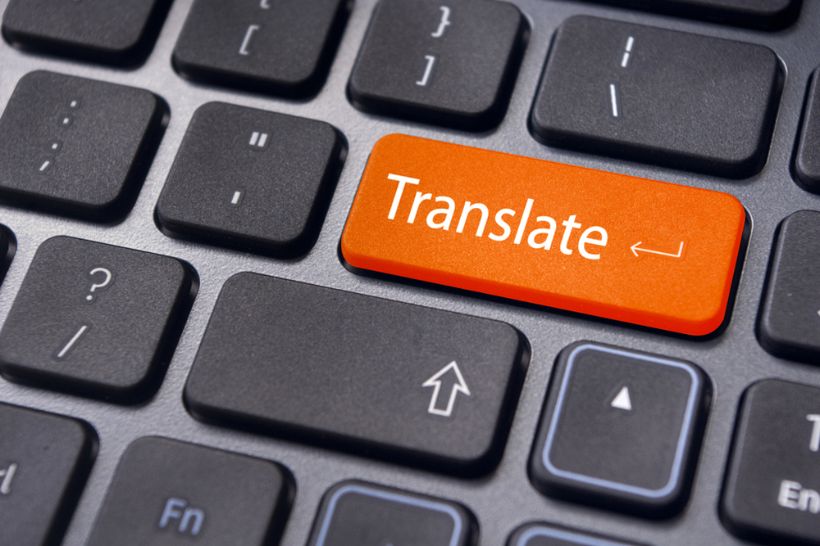Even the most seasoned translators make mistakes from time to time. So, any type of document translation in proving translation services is a difficult, technical task that necessitates precision, skill, and, of course, a solid grasp of written language in at least two languages.
This includes a thorough understanding of the vocabulary, grammar, idioms, and even the culture of the location in which the language is spoken, and this is true whether the translation is for transcripts or not.
However, many translators struggle to execute a competent job of translation, either because they are inexperienced or because they are unaware of the profession’s needs.
Errors committed in translation services
These are the most common translation services issues and their remedies, but let’s look at the nine most frequent translation errors committed by translators in this article:
Improper communication
There may be misunderstandings on both sides if you communicate badly with the client; you may not comprehend their expectations, and they may not realize your limitations.
As a result, it’s critical that you keep a clear line of communication open and don’t be afraid to ask questions. Therefore, this will assist you in improving your translation skills.
Word-for-word translation
You must not do a literal translation but rather convert the source document into the target document without affecting the sense of the text. So, the resulting content may not make much sense if you translate word by word.
Each language has its own style of sentence construction or syntax; the placement of the adjective in some languages may differ; the subject-verb agreement guidelines may differ; inanimate objects are also designated gender in some languages, which is not done in English; it’s also preferable that the gender specified in the two languages differentiates.
In German, for example, it’s not the motherland, it’s the fatherland, – and so on. Moreover, idiomatic terms must also be handled with care; if translated verbatim, they may not have the same meaning as the original.
Using the wrong words
Inexperienced translators are prone to doing this; they may employ terms in the wrong context. Furthermore, certain phrases, terms, and jargon simply do not have an equivalent in the target language; in these circumstances, it is preferable to leave the original term alone rather than inventing something because you believe every single word must be translated!

Word meaning exaggeration
In order to appear diligent, translators are sometimes tempted to go overboard. So, when the translated file is riddled with difficult and technical phrases, it is not required, and it is certainly not appreciated. So, it is critical to comprehend the client’s requirements and move accordingly.
If it is for personal use or as a guide or handbook, keep the language simple. Meanwhile, if it is more of a literary work that needs to be published, inquire about the publication standards that are required.
Employing the wrong tone and style
It’s critical to understand that each sort of document has its own scripting style. Similarly, the translated paper could be terrible if you are unaware of the suitable style. So, legal records, for example, cannot be translated in the same way as a medical transcript or a movie script.
Moreover, each of these has a different personality. The translated file will also appear soulless if you do not employ the appropriate style.
It is crucial to use the correct tone. So, even the punctuation varies from one language to the next. In Spanish, for example, a comma may be unneeded. To do credit to the work, it is critical to understand the intricacies of each language.
Operating in a language in which you are not fluent
To do justice to the translation work, you must be fully proficient in both the language you are translating from and the language you are translating to. So, accepting work to convert to or from a language you understand well but aren’t particularly fluent in increases your chances of making translation errors, which could harm your reputation and future possibilities in your field of translation services.
Taking more tasks than you can handle
Most experienced translators can manage roughly 2000 words per day on average; however, this number can vary depending on the amount of time required for research. So, it is pointless to take on too much work and then not be able to deliver on time.
It’s always better to under-promise and over-deliver than the other way around. As a result, apart from your work, your health may suffer as well; you will be tired and possibly stressed. Therefore, it can result in irreversible translation errors.
Approving documents outside your field of expertise
This is critical; just as an eye specialist will not accept patients with heart problems, a translator should only accept work related to topics with which they are intimately aware. Therefore, experience leads to competence, which allows you to excel in the areas in which you’ve chosen to specialize.
Some translators specialize in literary works, while others specialize in legal documents, maybe film scripts, technical documents, and medical transcripts. So you will need language skills as well as subject mastery, and you will only take jobs where you have both.
As previously noted, each specialty has its own style and tone, as well as its own jargon, which might be tough to understand if you are unfamiliar with the subject.
Failing to keep up with current events
Language, like technology, is always evolving; new words, idioms, terminology, and catchphrases appear on a regular basis. So, it’s critical to stay on top of these advancements so that you can incorporate them into your job.
Moreover, continuous learning is essential for translators so that they aren’t taken off guard when encountering a new word. It is easier to avoid traps if you are aware of them. So, keep in mind the areas where you can go wrong and avoid making these translation errors while providing translation services.





